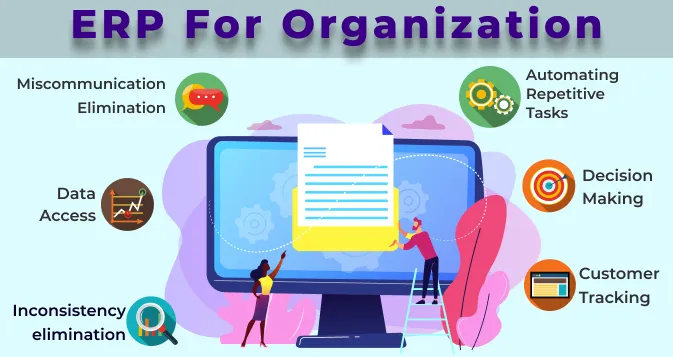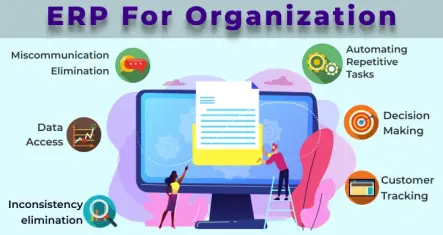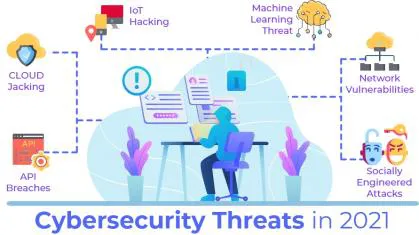Table of Contents
There are numerous businesses and firms across the globe which have an exceptional product, or have been rendering top-notch services, but are not profitable enough. Such businesses don’t witness a hike in sales even after product or service upgrades. Their major concerns e.g. solving daily challenges, streamlining the process, cost reduction, and improving productivity remain unaddressed; causing them to lag behind competitive peers in the market. In such situations, ERP comes to the aid, tackling the following challenges faced by any e-business:
- Miscommunication elimination and Information consolidation: If there’s an urgent requirement of any important information from other individuals, then such operations suffer very high risk. This may result in total disruption or unavoidable delays in the process. ERP provides a system that stores all important and necessary information in one place, eliminating the person presence risk. This puts a halt to unnecessary chit-chats and unproductive conversations/gossip between employees and eliminates the delay introduced within cross-departmental communication.
- Data access: One of the biggest troubles which small or medium scale businesses face is real-time performance report generation. With ERP software, businesses can view and export reports, generated on the latest business information. ERP system helps in grabbing the opportunities which may be lost in delay caused by slow-decision making during data processing. Datasets through ERP contain relevant information about costs, sales, and marketing which are both accurate and latest.
- Inconsistency elimination: When there are different procedures running simultaneously in a firm, inconsistencies emerge in the business, as many procedures among them are overlooked. ERP process acts as a balanced framework that is robust and flexible at the same time, giving ERP access to all the teams so that they work in parallel, boosting efficiency.
- Automating repetitive tasks: Many business operations include tasks that need to be carried out regularly. This overburdens the employees of the firm and makes their productivity plunge. Through ERP these repetitive tasks can be completed automatically, while employees can carry out their own work and total productivity surges significantly. Human errors can be eliminated while the time spent on searching different solutions can also be saved.
- Decision making: The majority of businesses face trouble while making crucial decisions regarding products, operations, or procedures. ERP software helps to overcome this challenge as it empowers, not only managers but also employees to take a decision by providing them with relevant information about the system, to which they are entitled.
- Elimination requirement of physical presence: Businesses whose employees work on remote mode or are on the move most of the times, face issues like process delay or disruption. ERP software provides access to systems and data on the go to the employees and managers via cloud based services, facilitating them with business insights.
- Customer tracking: For continuous quality improvement, customer feedback are quintessential as they enlighten the firm with the requirements of the customers which is often lost in sheets. With ERP software all the details like client communication, order history, customer feedback, query resolution are logged and available at a single location. Through this data, customized services can be rendered to the client, boosting customer satisfaction standards.
- Cash-flow disorders: Through ERP software, cash-flow can be clearly figured out as it stores orders, expenses, and production information. Thus indirectly an ERP helps to identify financial ambiguities as well as the position of the firm. The biggest advantage of the ERP system is that it takes cross-currency transactions into the account.
- Compliance woes: When a business works in multiple country locations, non-compliance risks along with various tax laws always lurk in the business framework. Through ERP software, services can be shared, planned, and budgeted; which assist in managing local tax, market, and regulatory requirements. It also helps in setting up definitions and standards for the firm, for future expansions to different locations.
With more than hundreds of ERP software available in the competitive markets, businesses have to comprehend that they have to select ERP software that suits their requirements, and aligns perfectly with the firm’s goals. Experience in the same domain of operations is a very good sign of achieving productivity gains after the implementation of the same ERP. Thus the selection of ERP will resolve a majority of the challenges associated with the business. It is better to test ERP software first before going for a long term partnership with the service provider.
Know More about ERP implementation here








